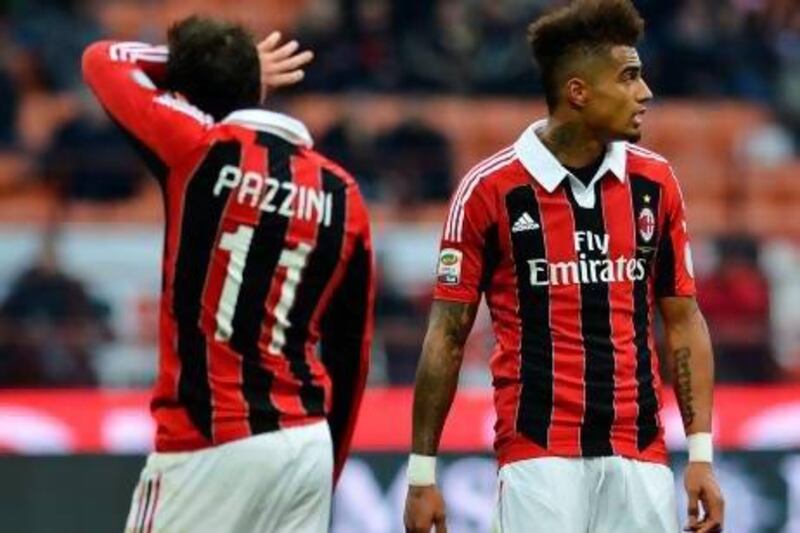Barely 48 hours after Kevin-Prince Boateng had walked off the pitch followed by his AC Milan teammates in a much-acclaimed protest against racist abuse directed towards him by a section of the crowd in a low-key friendly, Serie A heard more abuse.
Perhaps that was inevitable given the attention Boateng's action at Pro Patria's stadium last Thursday afternoon, had drawn to the issue, and the questions it had posed.
The most prominent of those was: would players or referees or crowds act differently now that Milan, in full view of television cameras, had done what many had talked about doing when confronted with monkey chants and actually stopped a match?
Once a minority of Lazio followers in Rome's Stadio Olimpico began to audibly abuse Cagliari's black Colombian striker Victor Ibarbo on Saturday night, there were some partial answers. A bigger tranche of the Lazio following whistled and jeered the racists.
The referee Daniele Orsato signalled to both captains that he could and would suspend play if the situation deteriorated.
The match continued, and Ibarbo chose not to draw attention to the abuse. And that is as valid an attitude as Boateng's had been.
While there is a natural instinct to be bold in the crucial fight to eliminate racism from football, the argument that drawing attention to those who spout their vile abuse only serves to gratify them also has truth in it. At least on Saturday, in their own stadium, the abusers heard loud and clear they are in a minority.






